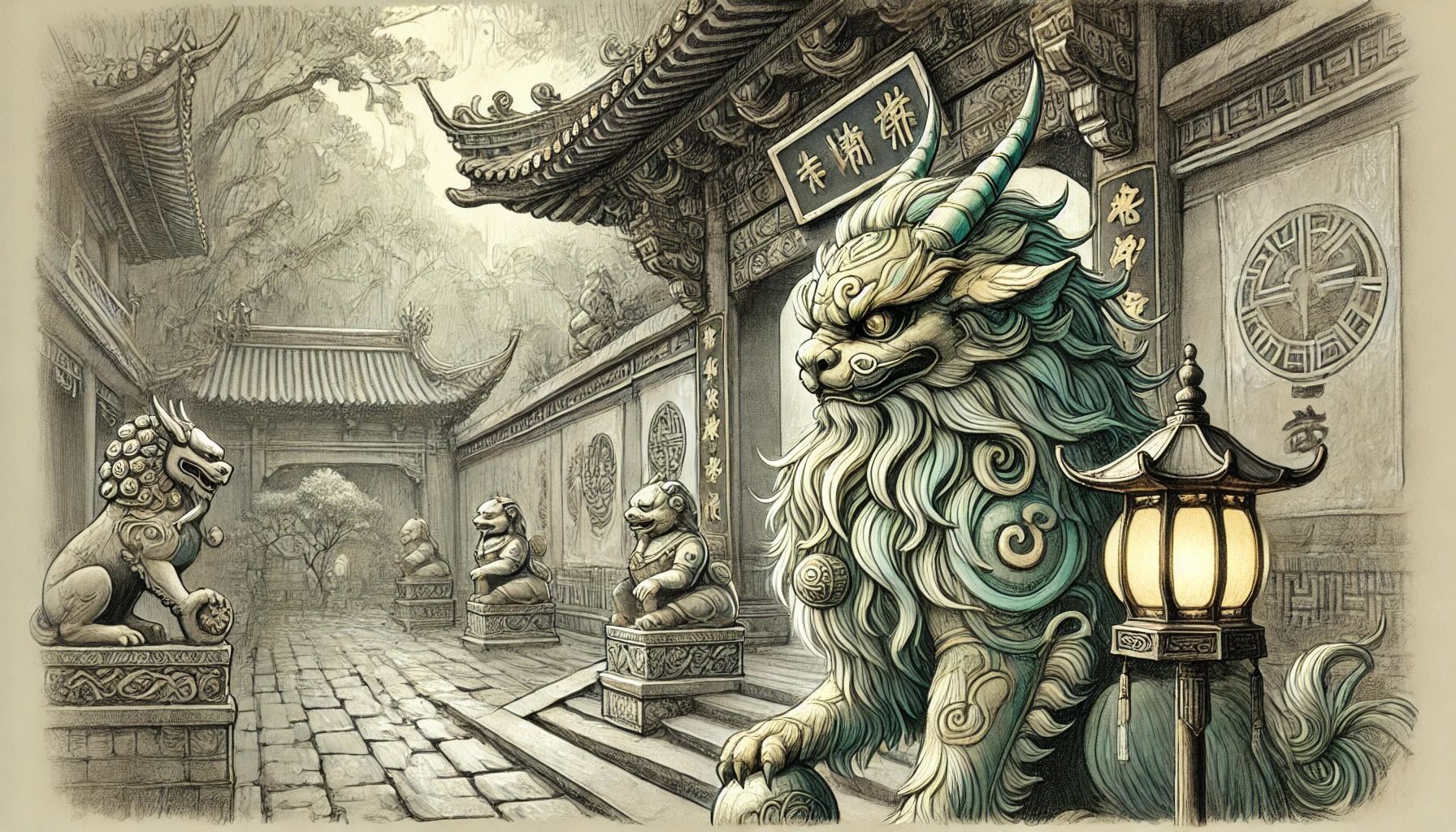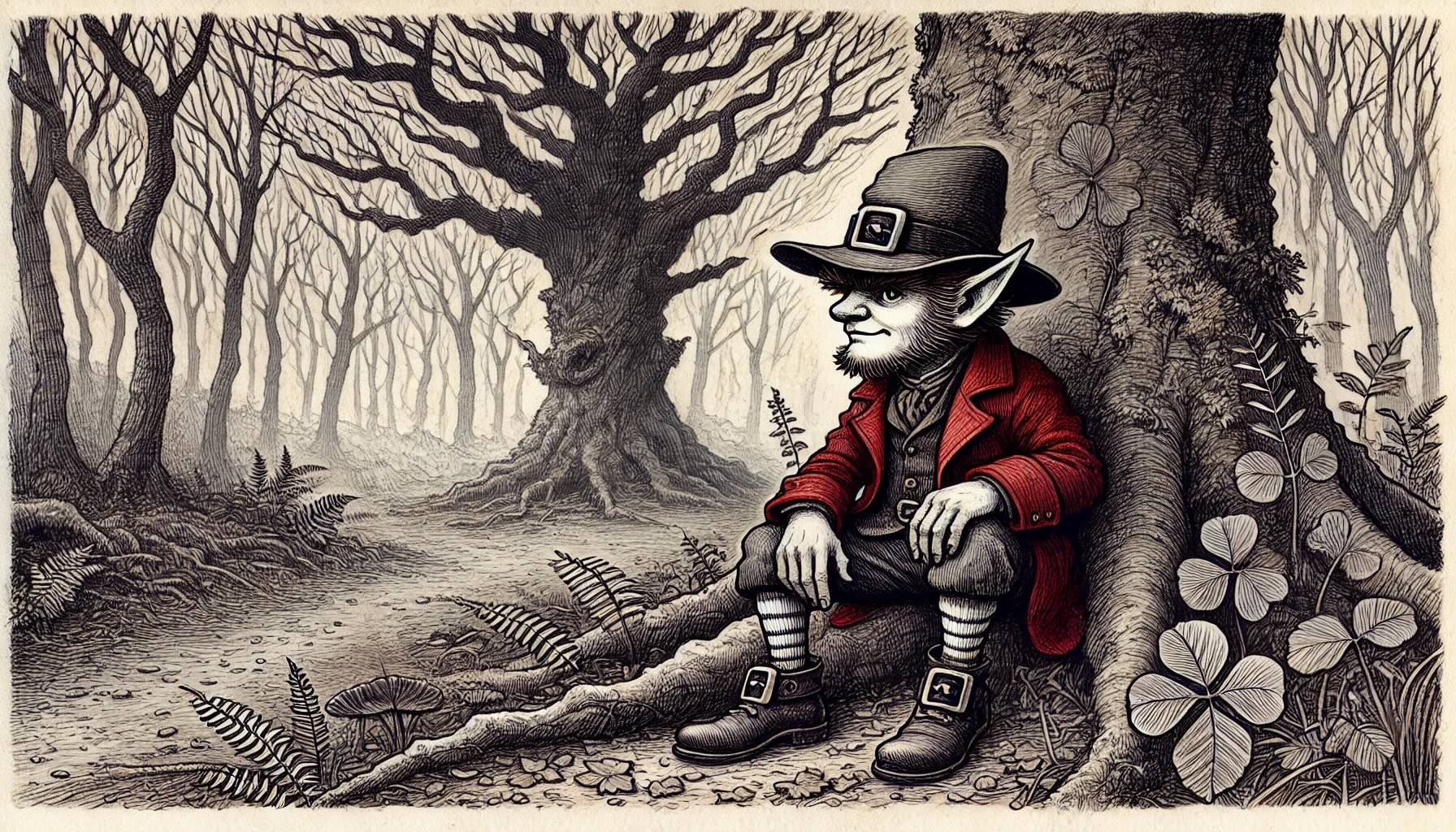Whispers from the River’s Edge
They say the river looks different before a Kappa strikes. The water settles, glass-like, reflecting the sky with unnatural clarity. The usual chorus of frogs and cicadas goes silent. Then, before you can react, a green, webbed hand bursts from below, its clammy skin cold and slimy against your wrist or ankle, pulling you toward the depths.
Those who survive an encounter claim they felt no warning, no ripple, no splash—just a sudden, vice-like grip. If you are near a body of water in Kappa territory, stay alert. It watches from beneath, waiting for an opportunity to strike.
The Kappa’s Disturbing Form
At first glance, the Kappa might seem comical—like a child-sized turtle with a grotesque, humanoid twist. But do not be fooled. It stands no taller than a young boy, with scaly green or bluish skin that glistens with moisture. Its limbs are spindly but strong, lined with clawed fingers webbed for swift movement through the water. Its most disturbing feature, however, is the dish-like depression on its head, filled with water. This liquid is the source of its unnatural strength, and should it be spilled, the Kappa weakens drastically.
Its eyes are sharp and calculating, often set into a permanent mischievous leer. Some say its beak-like mouth grins as it emerges from the river, revealing small, jagged teeth—better suited for devouring fish, but quite capable of tearing flesh.
Trickster of the Deep
Unlike mindless predators, the Kappa is dangerously intelligent. It does not simply attack—it lures, deceives, and manipulates. Many victims are not dragged into the depths outright but tricked into lowering their guard.
One infamous tale tells of a Kappa tricking a weary traveler by offering to carry his heavy bundle across a shallow stream. But as soon as the man stepped onto its back, the creature plunged into the depths, laughing as the traveler scrambled to safety, soaked and humiliated. Other times, their tricks turn deadly. They are known to mimic human speech, sometimes repeating the last words spoken to them in an eerie, distorted voice. Some stories tell of travelers hearing their own names whispered by the river—only to realize too late that no one else was there. They may challenge travelers to wrestling matches, knowing their inhuman grip and agility make victory certain.
They are not without honor, though—if a Kappa bows, it will spill the water from its head, rendering it powerless. This curious trait is both a weakness and a test; those who outwit a Kappa with a deep bow might earn their life, or even an uneasy truce.
The River’s Warnings
If you value your life, learn to recognize the warning signs:
- Strange handprints: Webbed, three-fingered imprints appear in the mud near rivers or wells, seemingly too small to belong to any man but too large for a bird.
- Rotting fish along the shore: Kappa feast messily, leaving half-eaten carcasses and cracked shells littering the banks.
- Unusual politeness from strangers: A Kappa in human disguise is unnervingly polite and avoids stepping too far from water. If a stranger refuses to bow first, be wary.
- Laughter or crying near water: Kappa are skilled mimics and may use the voices of lost children or distressed travelers to lure prey closer.
Tales of the Unfortunate and the Clever
Many riverside villages tell tales of the Kappa, some serving as grim warnings, others as rare instances of begrudging respect between humans and the creature.
One such tale tells of a fisherman who was challenged to a wrestling match by a Kappa. Knowing he stood no chance against its unnatural strength, he relied on wit rather than force. As the creature lunged, the fisherman bowed deeply in feigned respect. Bound by its own code of honor, the Kappa reflexively returned the gesture—spilling the water from its head. Weakened, it collapsed, unable to move. Instead of striking the creature down, the fisherman refilled its head-dish with water, an act of mercy that did not go unnoticed. In gratitude, the Kappa vowed to never harm his family, and to this day, riverside villagers pass down charms and rituals to remind their children of this lesson: respect and wit can be greater than strength.
Another, darker tale speaks of a child who ignored the warnings of the river and went to play by the reeds. A Kappa dragged him into the depths, and all that remained was a lone sandal floating on the surface. Since then, mothers whisper the child’s name at dusk, hoping their voices will remind the Kappa that enough blood has been taken.
How to Outsmart a Kappa
Despite their supernatural abilities, Kappa have several known weaknesses:
- The Deep Bow: If you bow to a Kappa, etiquette forces it to bow back, spilling the water from its dish and leaving it weak and disoriented.
- Cucumbers: Kappa are said to be obsessed with cucumbers, their favorite food. Many villagers carve their names onto cucumbers and toss them into rivers as an offering, hoping to sate the creature’s hunger before it turns to human prey.
- Iron and Fire: As creatures of water, Kappa despise fire and recoil from iron weapons. Many travelers carry an iron-tipped staff when walking near Kappa-infested waters.
- Avoidance: The simplest protection—stay away from still waters at dusk or dawn, when Kappa are most active.
One Last Caution
If you hear a splash behind you and turn to see nothing but rippling water, do not linger. An old fisherman once claimed to have glimpsed something crouched at the riverbank, watching him with unblinking eyes. The next morning, he found wet, three-fingered prints trailing from the shore to his doorstep. He never spoke of it again. If the reeds begin to sway when there is no wind, step away. And if you ever find yourself face to face with a Kappa, do not panic. Instead, bow deeply and hope the creature values its pride more than its hunger.



